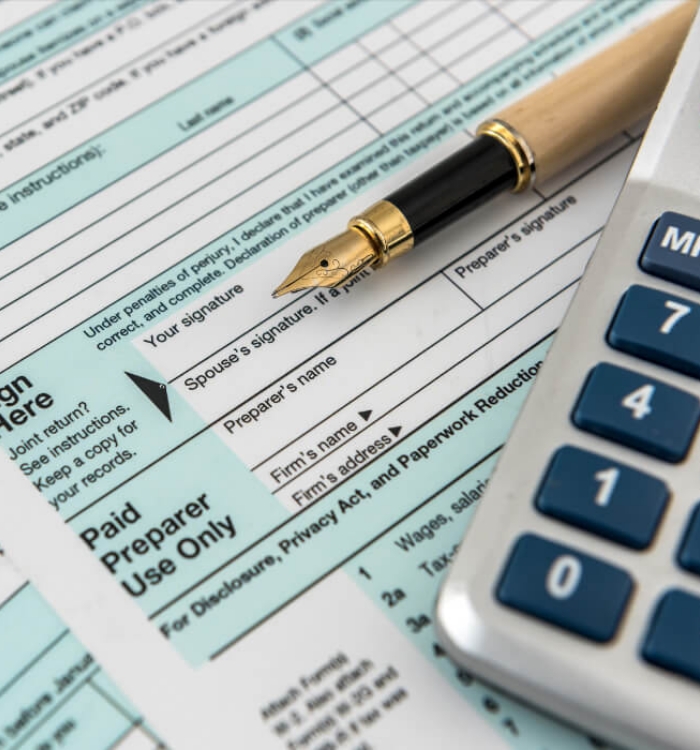
Planning for retirement
Plan
Why should I plan?
Planning is crucial for achieving your retirement goals. Starting your retirement savings journey may seem daunting, but it's essential to ensure a financially secure future. Here's why planning is vital and how it can help:
- Longer lifespans: With advancements in healthcare, many retirees live longer, making it crucial to plan for extended retirement years.
- Financial sustainability: Proper planning ensures your funds last as long as you need them.
- Progress tracking: Like a financial health check-up, planning helps you regularly assess your retirement funds, ensuring they stay on the right track.
- Peace of mind: A solid plan reduces financial stress allowing you to enjoy your retirement worry-free.
- Adaptability: Life is unpredictable, but a well-thought-out plan helps you adapt to changes and maintain your financial stability.
Here’s how you can get a general idea of whether your savings are on track to last throughout your retirement.
How do I plan?

Set a savings goal
Set a retirement savings goal by assessing your current expenses and considering potential changes in retirement like reduced mortgage and commuting costs. You may need around 80% of your pre-retirement income to cover living expenses, but don't forget to account for any retirement dreams like travel or a vacation home.
*Go to vanguard.com/retirementplans and navigate to the "Plan my retirement" menu to access the Retirement Income Calculator.
Estimate healthcare expenses
Rising healthcare costs can make planning a real challenge. Review the Estimating Healthcare Costs in Retirement infographic to understand the factors that may affect your healthcare spending in retirement and make smarter decisions for your future.


Consider other costs
Once you retire, you will need to have a plan in place for how you will manage income taxes on your tax deferred retirement accounts. It’s also important to factor repairs and maintenance, property taxes, HOA fees, rising rents, and inflation into your strategy. You can learn more about these costs – and how to prepare for them – in the Vanguard Protect Your Retirement Income course.
Understand your benefits
One of the most important things you can do as you plan for retirement is to make sure you consider all of your available sources of retirement income – that is, make sure you have the big picture.
Click the link for a quick introduction to these three important components of retirement: 401(k), pension, and Social Security.


Get help from the experts
Now estimate how much your current savings will be worth when you retire. Vanguard Digital Advisor®* can help you forecast your chances of reaching your retirement goals and determine if you have a savings gap. Vanguard Digital Advisor® is offered through most FedEx 401(k) plans and can provide a retirement forecast based on all of your assets – not just your 401(k) plan. It’s also done completely online.
To access Vanguard Digital Advisor®, log in to vanguard.com/retirementplans. Click on "Access my money," then "Advice." You will see "Advice" under Quick Links. Once in that section you will see the link to Vanguard Digital Advisor® on the left-hand side of the page.
Note: If you have multiple accounts at Vanguard, after logging in you may have to click on "Employer Plans" before clicking on "Get Advice."
*Includes service fees based on your account balance. The following groups are not eligible for Vanguard Digital Advisor®: Employees in the FedEx SCA Employees 401(k) Retirement Savings Plan [097572]. Employees in the FedEx Retirement Savings Plan for Puerto Rico and employees who have an address outside of the United States, or a mailing address in Guam or the U.S. Virgin Islands.
Make adjustments
If you think you’re going to fall short of your retirement goal, you have several options:
- Start saving more.
- Invest more aggressively. Aiming for higher potential returns may help you reach your goal. But be sure your investments are adequately diversified.
- Adjust your planned retirement date.
- Adjust your planned withdrawal rate. If you can make do with less during retirement, your assets may last a bit longer.

Start your emergency fund
Every retirement journey is different. But there is one important step to take before you start tackling debt or increasing your contributions to your retirement savings accounts. You need to consider an emergency fund.
An emergency fund is savings that you put aside just for life’s unexpected events that qualify as true emergencies, like covering your expenses after a sudden layoff or when your HVAC breaks during the coldest January on record.
If you are considering using money from your emergency fund, you need to ask yourself whether the expense is unexpected, necessary, and urgent. Ideally, the expense would qualify for all three.
Starting your emergency fund
Many financial experts recommend that you have an emergency fund that can cover anywhere from 3 to 12 months of expenses. Still, saving that much money can feel daunting. That’s why starting with a smaller goal, such as $1,000, and working your way up to a larger amount can be helpful. Here’s how you can get started:
![]()
Live by your budget.
Take stock of your monthly income streams and expenses. If you spend the time taking inventory of where you are spending your money, you can see opportunities to save on unnecessary expenses. Plus, having a monthly savings goal built into your budget will give you a consistent way to contribute to your emergency fund, even if it’s only a small amount each month.
![]()
Keep your emergency fund close.
But not too close. You want to make sure that your emergency fund is quickly and easily accessible in the event of an emergency. A separate bank account is a good option. However, you should also ensure that the account isn’t too easy to access, or you may be tempted to dip into the funds for non-emergencies.
![]()
Adjust how much you save regularly.
Keep an eye out for opportunities where you may be able to save more. A new job or promotion could divert more income toward your savings goal. Eliminating a debt or expense from your budget also frees up more money to put toward savings. Be sure to review your budget regularly to look for opportunities to adjust your savings strategy.
Once you have a solid plan for retirement and have started to build your emergency fund, you can focus on tackling debt and building up your retirement savings.
Vanguard also offers an emergency fund calculator which can be found by logging in at vanguard.com/retirementplans, going to the “My Financial Wellness” drop- down in the top banner, and selecting "Be Ready for the Unexpected."
Dealing with debt
Credit card debt can creep up on you. Paying for purchases with a credit card is easy and convenient – but carrying your consumer debt into retirement can eat into your savings and reduce your standard of living.
Paying off high interest credit card debt is an ideal place to start tackling your debt so you can prepare for retirement. Here are some strategies that may help you deal with your credit card debt:
- Pay off your balance each month to avoid paying interest.
- Don’t make just the minimum payment because that will extend your payments or significantly increase the amount you ultimately pay out.
- Pay your bills on time to avoid late fees.
- Don’t carry credit cards. Pay for things with cash or debit cards, so you are more aware of what you are spending.
- Develop a plan to keep track of where you’re spending your money and look for places to cut back.
Do I need to be concerned about estate planning?
Estate planning is for everyone. Clothes, jewelry, art, vehicles, antiques, homes, land, cash, checking and savings accounts, retirement accounts, life insurance, stocks, bonds and more are considered part of a person's estate. In another sense, an estate is all the property a person owns at the time of their death. You want to make sure your wishes are followed, and estate planning ensures that what you want to happen actually does happen.
Consider having a will, living trust, durable power of attorney, power of attorney for healthcare and/or a living will. Keep in mind, however, that your will does not govern who receives your ‘contract-controlled’ assets such as 401(k), Portable Pension Account and/or life insurance. Make sure your beneficiary designations are always current.
An estate plan makes sure that you and your beneficiaries get the maximum value from your hard-earned money – both before and after your death.
You should be aware of events that generally trigger the need for an estate review:
- Births. You probably will want to consider the needs of a new child or grandchild in your estate strategy.
- Deaths. The death of your spouse or another beneficiary can greatly affect your strategy. So, too, can the death of your personal representative (executor), your children’s guardian or your trustee. When you need to update your pension beneficiaries, log on securely to digital.alight.com/fedex. To update your 401(k) beneficiary, visit vanguard.com/retirementplans or you can call the Vanguard Participant Center at 1.800.523.1188.
- Health concerns. An important part of an estate strategy is protecting yourself and your family against your possible incapacity or death.
- Marriages. If you marry, you most certainly will want to review your estate strategy. Also, when your children marry, you may want to revise it.
- Divorces. Most people review their estate strategies if they divorce. But many fail to consider the possible unintended consequences of a beneficiary’s divorce on that beneficiary’s inheritance. For example, if your will gives your son and his wife joint ownership in your home, think of the problems that could arise if they divorce and you don’t revise your will.
- Moves out of state. If you move to a new state, your estate settlement could become more complicated, especially if you continue to own real estate in your “old” state. Consult with an attorney in your new state to learn more.
- Changes in estate composition. A substantial increase or decrease in the value of your estate since you and your attorney designed your estate strategy may throw it off kilter and make a review or revision necessary.
- Business changes. Certain business changes signal the need for an estate plan review. These changes include starting, buying or selling a business; entering into a buy-sell agreement that provides for the sale of your business interest when you die; and the death of a business partner or another important member of your firm.
- Tax law changes. On average, the tax law changes every couple of years. Any changes in the law may make your estate strategy outdated.
Because life insurance is an integral part of many people’s estate strategy, it’s important to review your coverage with your financial professional whenever you review your estate strategy with your attorney.
Make sure your will is still appropriate. Do the decisions you made regarding who will get your money and property still apply? Also, look at whom you chose to act as guardian of your minor children, whom you chose to be the executor or personal representative of your estate, and the trustee of any trusts you have created. Be sure these choices are still the right ones.
Provide your family the information they will need to know when you die, including the location of your will; a list of your accounts and insurance policies; the names, addresses, and phone numbers of your advisors; and your funeral and burial instructions.
It will be helpful to list your assets: retirement accounts, investments, savings accounts, real estate, insurance policies, and valuable items like your mother’s pearls or your grandfather’s Mickey Mantle baseball card. Maybe you’ve watched Antiques Roadshow – take a look around and list important sentimental items, as well as financial documents.
Then decide whom you’d like to inherit these assets. That’s why you need to have a will and why it’s so important to fill out those beneficiary election forms. Note: Your will does not direct who will receive your retirement accounts. Why don’t you stop right this minute and take the time to choose a beneficiary – you’ll need a separate election for the pension and 401(k) plans – so your loved ones are protected when you die.
If you die before choosing a beneficiary – or without a will – your assets can be eaten up through the estate process and tied up for a long time in the court system. No one wants that to be the legacy left for loved ones to sort through.
- Gather and review financial records, current will and so forth. Contact an attorney to update a will, financial and healthcare powers of attorney, or a living will.
- Update beneficiary information for your pension (if applicable), 401(k), IRAs and life insurance policies (if applicable).
- Talk things over with your loved ones.
The FedEx benefits described on this website are based on a formal plan document or contract. While this information is intended to be accurate, retirement benefits are subject to the detailed provisions of the applicable plan documents. If there is a conflict between this website and the official plan documents, the plan documents always govern. You are not entitled to retirement plan benefits due to a misstatement on or an omission from this website. FedEx reserves the right to amend or terminate any benefit plan at any time and for any reason. This website content does not apply to employees of Federal Express Corporation who are classified as Residential Delivery Driver - Non-DOT effective on or after January 1, 2025
